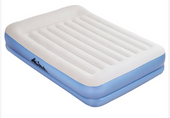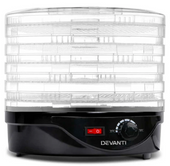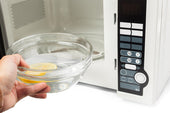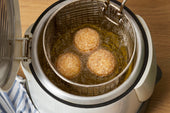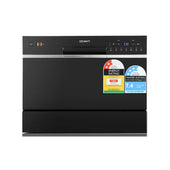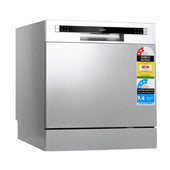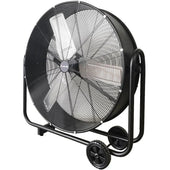Understanding the Importance of a Clean Kitchen Sink Drain
A clean stainless steel kitchen sink drain is vital for maintaining hygiene and preventing unpleasant odours. Food particles, grease, and debris often accumulate in the drain, becoming a breeding ground for bacteria. Regular cleaning ensures these contaminants do not impact the kitchen’s cleanliness or safety. Blocked or dirty drains can lead to slow water drainage, increasing the risk of water overflow and damaging surrounding areas.
Moreover, a well-maintained drain contributes to the longevity of plumbing systems, and at During Days, we emphasise that it also reduces the need for expensive repairs. Additionally, a clean drain helps minimise pest infestations, as insects and rodents are often attracted to leftover food residues.
Common Problems That Affect Kitchen Sink Drains
Kitchen sink drains often encounter a variety of issues that can disrupt daily routines. Some of these problems arise due to everyday usage, while others result from neglect. Common issues include:
- Food Particles and Grease Build-up: Leftover food scraps and oils can accumulate in the drain, causing blockages over time.
- Soap Scum and Mineral Deposits: Hard water minerals combine with soap residue, leading to stubborn clogs.
- Clogged P-trap: The curved pipe under the sink may trap debris, obstructing water flow.
- Foreign Objects: Items like utensils or small debris accidentally dropped down the drain can block it.
- Slow Drainage: Grease, grime, and waste cause water to drain slowly, signalling a clog developing in the pipes.
Consistent maintenance can help reduce these issues significantly.
The Benefits of Cleaning Your Drain Naturally
Cleaning a undermount kitchen sink drain naturally offers numerous advantages.
- Environmentally Friendly: Natural cleaning methods utilise ingredients like baking soda and vinegar, which break down easily, reducing the release of harmful chemicals into water systems.
- Cost-Effective: Everyday household items are often cheaper than commercial drain cleaners, making this method budget-friendly.
- Safer for Health: Chemical cleaners can emit fumes and cause skin irritation, but natural alternatives are gentler and safer for household use.
- Preserves Drain Pipes: Harsh chemicals can corrode pipes over time, whereas natural solutions help maintain their longevity.
- Sustainable Practice: Using natural methods aligns with eco-conscious lifestyles, promoting sustainability.
Incorporating natural cleaning practices supports both individual well-being and environmental health.
Essential Tools and Ingredients for Natural Drain Cleaning
When cleaning a single bowl kitchen sink drain naturally, it is crucial to assemble the right tools and materials for effective results. These items are typically easy to find in most households or local stores.
Tools
- Rubber gloves: Protect hands from residues and debris.
- Drain snake or plunger: Useful for dislodging larger clogs.
- Measuring cups: Ensures correct proportions of cleaning ingredients.
- Old toothbrush: Perfect for scrubbing away grime around the drain opening.
Ingredients
- Baking soda: A natural deodoriser and mild abrasive that works well for loosening grease.
- White vinegar: Acts as a powerful cleaning agent due to its acidity.
- Hot water: Aids in flushing down dissolved debris effectively.
- Salt: Enhances scrubbing power when mixed with baking soda.
Having these on hand ensures a smooth, eco-friendly cleaning process.
Preparing Your Sink for Cleaning
Before beginning the cleaning process, remove all items from the black kitchen sink, including dishes, utensils, or sponges. Ensure the sink is free of debris to enable proper access to the drain. Run warm water for a few seconds to loosen any stuck-on residue and rinse away visible particles. Inspect the drain area for food scraps or build-up, which may require manual removal using gloves or a small tool like tweezers. Prepare your natural cleaning materials, such as baking soda or vinegar, so they are readily accessible. Double-check that no standing water is left in the sink to prevent interference during the cleaning process.
Step-by-step Process to Clean Your Kitchen Sink Drain Naturally
- Gather Ingredients: Collect baking soda, white vinegar, and hot water. These are effective and natural cleaning agents.
- Prepare the Drain: Ensure the sink is free of debris or standing water to avoid interference during the process.
- Apply Baking Soda: Pour half a cup of baking soda directly into the drain. Baking soda will begin loosening grime and odours.
- Add Vinegar: Slowly pour half a cup of white vinegar after the baking soda. The mixture will create a fizzing reaction that helps dislodge buildup.
- Wait: Allow the solution to sit for 15-20 minutes. This waiting period ensures optimal cleaning efficiency.
- Flush with Hot Water: Carefully pour a kettle of hot water down the drain to rinse away loosened impurities and residue.
How to Use Baking Soda and Vinegar Effectively
Baking soda and vinegar work as a natural cleaning duo due to their chemical reaction that helps loosen grime and residues. To clean a kitchen sink drain, follow these steps:
- Prepare the drain: Remove debris from the drain opening to ensure a clear path.
- Add baking soda: Pour half a cup of baking soda into the drain, spreading it evenly.
- Pour vinegar: Slowly add half a cup of vinegar, allowing it to fizz and bubble.
- Wait and scrub: Let the mixture sit for 10-15 minutes; during this time, scrub the drain’s opening if needed.
- Rinse with hot water: Flush the drain with boiling water to clear loosened build-up.
Repeat as necessary for maximum freshness.
Unclogging Drains with Salt or Lemon Juice
Using salt or lemon juice is an effective way to clean and unclog kitchen sink drains naturally. Both ingredients possess properties that break down grease, residue, and minor build-ups.
How to Use Salt:
- Gather materials: Use coarse rock salt or table salt.
- Pour into drain: Add half a cup of salt directly into the drain.
- Flush with boiling water: Pour 1-2 litres of boiling water slowly to dissolve debris.
How to Use Lemon Juice:
- Prepare lemon juice: Squeeze fresh lemons to extract juice.
- Combine with warm water: Mix equal parts warm water and lemon juice.
- Pour and wait: Pour into the drain and let it sit for 30 minutes before rinsing thoroughly.
Salt scrubs away clogs, while lemon juice deodorises the drain effectively.
Preventative Measures to Keep Your Drain Clean Longer
Taking steps to prevent build-up in the kitchen sink drain can reduce the frequency of cleaning and ensure better flow. Simple habits and natural remedies can help maintain cleanliness effectively.
Adopt Proper Usage Habits
- Avoid pouring grease, oils, or fatty substances down the drain, as these solidify and cause blockages.
- Use sink strainers to filter out food particles and debris before they reach the drain.
- Limit the disposal of fibrous or starchy food waste, such as potato peels or celery, which can cling together in pipes.
Regular Maintenance Techniques
- Pour boiling water down the drain weekly to dissolve grease or small clogs.
- Use a mixture of baking soda and vinegar monthly to remove odour and keep the drain clear.
- Flush the drain occasionally with lemon juice to prevent bacteria build-up and add freshness.
By implementing these measures, kitchen sink drains will stay cleaner and function efficiently over extended periods.
When to Seek Professional Assistance for Persistent Issues
If unpleasant odours or slow drainage persist despite natural cleaning methods, it may indicate deeper blockages or worn plumbing. Individuals should consider seeking professional help if water backs up frequently or if debris builds up quickly after cleaning. Continuous issues could suggest damage to pipes or a problem needing specialised tools for proper resolution.
Signs such as stagnant water, strange noises during drainage, or multiple clogged fixtures might indicate plumbing system faults. Professional plumbers have equipment to identify and clear obstructions, repair pipe damage, or address systemic issues effectively. Ignoring such problems may lead to costly repairs or water damage later.
Additional Tips for Maintaining a Fresh and Odour-Free Drain
- Rinse with Hot Water Regularly: Pouring boiling water down the drain once a week helps dissolve grease, soap residue, and other build-ups, minimising odours.
- Use Citrus Peels: Grinding small amounts of orange or lemon peels in the disposal (if available) refreshes the drain with a natural, pleasant scent.
- Limit Grease and Oil Disposal: Avoid pouring oils and fats into drains as they solidify and trap odour-causing debris. Dispose of grease in a sealed container instead.
- Clean the Drain Stopper: Remove and scrub the sink stopper weekly to prevent soap scum or food particles from accumulating.
- Apply Baking Soda and Vinegar* *Regularly: Using a mix of baking soda and vinegar once a fortnight helps break down organic contaminants while neutralising odours.



























































